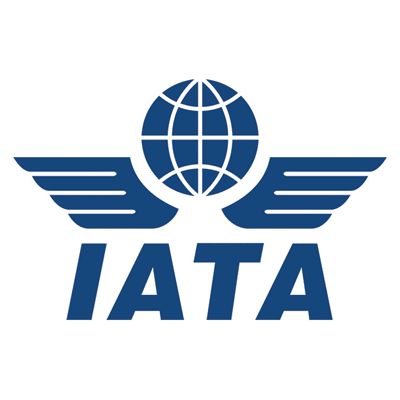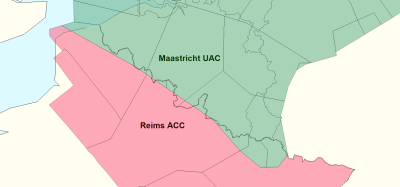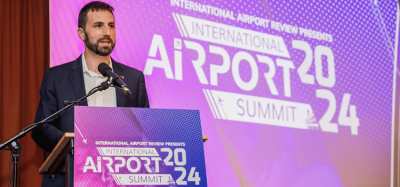Landmark Agreement on Climate Change at ICAO
- Like
- Digg
- Del
- Tumblr
- VKontakte
- Buffer
- Love This
- Odnoklassniki
- Meneame
- Blogger
- Amazon
- Yahoo Mail
- Gmail
- AOL
- Newsvine
- HackerNews
- Evernote
- MySpace
- Mail.ru
- Viadeo
- Line
- Comments
- Yummly
- SMS
- Viber
- Telegram
- Subscribe
- Skype
- Facebook Messenger
- Kakao
- LiveJournal
- Yammer
- Edgar
- Fintel
- Mix
- Instapaper
- Copy Link
Posted: 4 October 2013 | The International Air Transport Association (IATA) | No comments yet
Major progress on environment, safety, security, operations and regulation…


The International Air Transport Association (IATA) praised the leadership of governments in reaching a landmark agreement on Climate Change at the close of the 38th Assembly of the United Nations International Civil Aviation Organization (ICAO).
The agreement commits ICAO to developing a global market-based measure (MBM) that will be an essential enabler for the industry to achieve carbon-neutral growth from 2020 (CNG2020). A global MBM complements progress on improving technology, operations and infrastructure in the industry’s long-established four-pillar strategy to manage aviation’s climate change impact.
“Today was a great day for aviation, for the effort against climate change and for global standards and international cooperation. Industry, civil society and governments have worked hard to reach this point and keep aviation at the forefront of industries managing their climate change impact. Now we have a strong mandate and a short three-year time frame to sort out the details. Airlines need and want a global MBM. Without losing any of the momentum built up over these last two weeks, we are eager to get on with the detailed work needed to design the global scheme in time for finalization at the 2016 Assembly,” said Tony Tyler, IATA’s Director General and CEO.
Today’s agreement will set in motion discussions on the detailed design elements of a global MBM, including standards for the monitoring, reporting and verification of emissions and the type of scheme to be implemented. In June, IATA’s 240 member airlines representing some 84% of global traffic overwhelmingly passed a resolution asking governments to develop a global mandatory carbon offsetting scheme. The industry believes that this will be the most effective and efficient MBM to implement.
“We should also recognize the important role that the European Commission and Parliament have played in raising the aviation emissions issue up the international agenda. Aviation would not be in the climate leadership position it is in today were it not for their early and persistent efforts which inspired both industry and other governments. As the EU Transport Commissioner, Siim Kallas, said, ‘The EU’s hard work has paid off.’ Aviation-through the stewardship of ICAO-has achieved the first-ever global deal to curb an industry’s emissions,” said Tyler.
“Reaching this landmark agreement among ICAO’s 191 member states was a challenging task. Today’s result carries on the ICAO tradition of uniting governments to focus on the global standards that underpin global connectivity. I congratulate the ICAO leadership for their vision and skill in rallying interests around a common purpose,” said Tyler.
The Complete Agenda
The 38th ICAO Assembly also delivered key decisions and direction on a broad range of technical and economic issues.
Some the highlights include:
- Safety: The Assembly endorsed the Enhanced-IATA Operational Safety Audit (Enhanced-IOSA). This builds on the proven benefits of the IOSA program by adding elements of continuous compliance monitoring. In addition, the Assembly encouraged greater state participation in the ICAO managed global Airline Operator Certificate registry. This will be a key tool in the efficient safety oversight of foreign carriers. The Assembly also encouraged harmonization among states on operational specifications.
- Security: The Assembly provided direction on critical areas in aviation security. To stem the proliferation of non-standard security data requests by governments the Assembly encouraged the use of ICAO global standards by immigration and border control agencies. It also encouraged standardizing air cargo security regimes through compliance with ICAO principles; to work with states on capacity building where needed; and to encourage implementation of the Roadmap to Strengthen Global Air Cargo Security.
- Regulation and Taxation: The Assembly encouraged universal adoption of the Montreal Convention 1999 (MC99). It further urged governments to align consumer protection regulations with MC99’s provisions and strike the right balance between protecting passengers and ensuring industry competitiveness. The IATA resolution on consumer protection regulation was noted by the Assembly.
The Assembly also urged States to avoid imposing discriminatory taxes on international aviation and double taxation.
Recognizing growing relationships among airlines to serve market need, the Assembly asked for cooperation among competition authorities in the context of how alliances, mergers and joint ventures are viewed. And it asked ICAO to develop a multilateral agreement on foreign ownership and control.
Finally, the Assembly agreed to convene a Diplomatic Conference to update the Tokyo Convention which provides the international legal framework with respect to unruly passengers.
- Technology: As global navigation systems evolve, the Assembly encouraged states to develop equipment standards based on capabilities and refrain from mandating the use of specific satellite navigation systems. It also encouraged states to recognize the capabilities of flight simulation training entities which operate under global guidance developed by ICAO and the industry.
“This was truly an Assembly of significant discussion and decisions. Global standards-developed and safeguarded by ICAO-are the bedrock of global aviation. We are encouraged by a clear message from governments coming out of this Assembly that global implementation of what has been agreed at ICAO is critical to the future successful development of our important industry. Airlines will carry some 3 billion people and over 50 million tonnes of cargo this year. A globally standardized environment is absolutely essential to perform this important task safely, securely, sustainably and efficiently,” said Tyler.

















